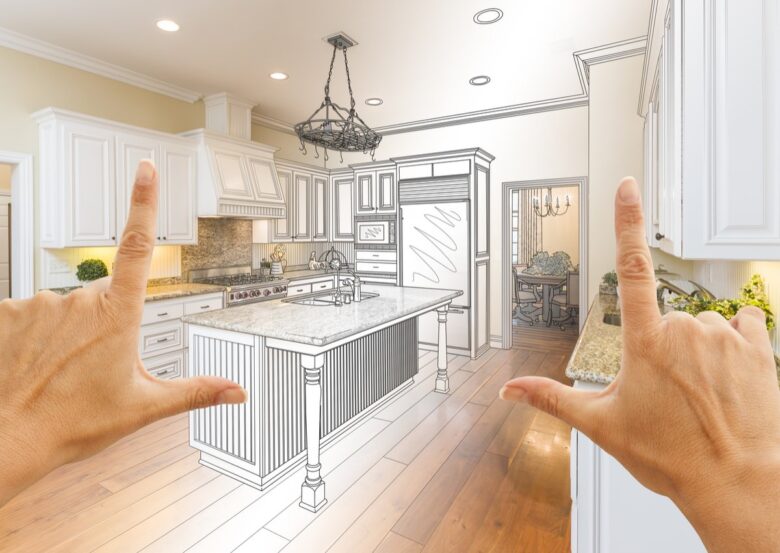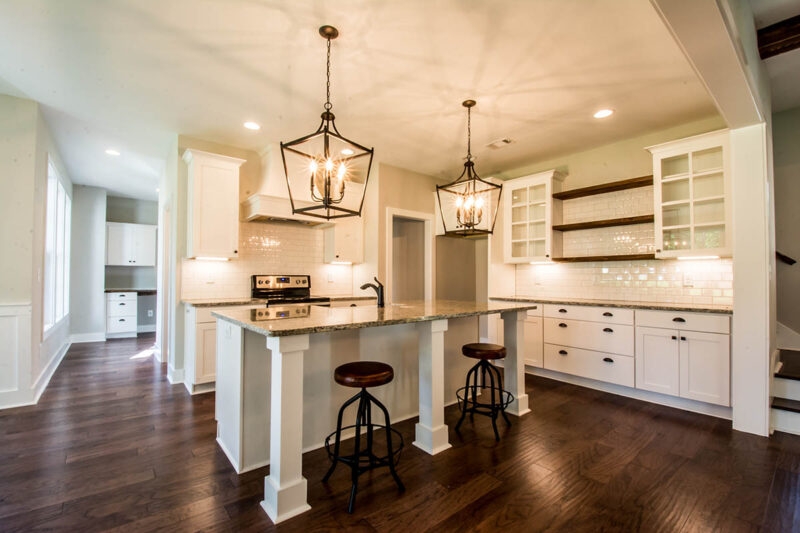Time for a change? Maybe a little upgrade or perhaps a complete gutting and refurbishing? Whatever your reno desires, planning is essential. Budget is often the biggest factor. Even a pay-as-you go project needs organization and a good budget plan.
Try these tips to make the most out of your home renovation project.
Tip #1: Decide the extent of the renovations.

Which rooms do you want to remodel? How deep will the renovations go? Do you want to gut the whole room or just give it a little face-lift? To get the most out of your renovation budget, consider the reasons why you want to remodel or upgrade and set your budget accordingly.
Once you decide on the extent of renovations, it will be easier to plan your budget. If your budget falls short of your dreams, you can simply scale back a bit. For example, rather than a top-of-the line jetted bathtub, go with a regular tub. Choose less expensive kitchen appliances or cheaper floor and wall coverings. A few hundred dollars here and there can add up to quite a hefty sum.
Tip #2: Overestimate the cost of renovations.
The internet is a great place to start when planning your home renovations. It is a good idea to do your homework. Research the cost of new or refurbished materials, the cost of hiring experts for certain parts of the project and the cost of rubbish removal.
These expenses are quite straightforward. Most homeowners have these costs in mind before renovations begin and use these numbers to calculate the overall cost. Online calculators make estimated costs quick and easy.
But, as with most things, there are always incidentals, unforeseen costs or changes in the plan. That is why it always a good idea to have a little “mad money” set aside to cover underestimations. The average homeowner sets an unrealistically low budget – usually about 10% – 25% less than what they really need.
Once you have your budget in place, get quotes from reputable contractors. Even if you plan to do most to the work yourself, qualified and certified engineers, electricians and plumbers will be required to pass safety and inspection laws. And remember, the cheapest is not necessarily the worst, and the most expensive is not necessarily the best. Always choose quality over price.
Tip #3: Set a realistic time frame.

Home renovations are messy! No matter how much you clean as you go, you will have a huge mess at the end of every day. When most people plan a timeline, the clean up process is rarely included. Neither are all the “little” things that only take a moment.
Home reno shows and YouTube videos often give the impression that renovations can be done quickly or cheaply or both. This is false. Cheap or quick rarely, if ever, produce the desired results. This doesn’t mean you have to spend a fortune, but anything worth doing, is worth doing right.
Consider what and why you want changed or fixed. If you are planning to work on several rooms, consider doing one room at a time. This will keep the mess and disruption to a minimum. You may be tempted to do all of the flooring or drywall work at the same time, thinking this will save time, but actually, this will end up taking longer because you will have to keep moving furniture around, as well as trying to work around the mess.
By doing one room at a time, you can completely empty the room, do the work, clean up the mess and then use the room to hold the furniture from the next room. But, even with this time-saving trick, you still need to allow extra time for problems or set-backs in the schedule.
Tip #4: Decide how you will pay for this project.
Sounds simple, but it’s surprisingly easy to let your dreams get ahead of your finances. If you’re handy, you can save a ton on labor and clean up costs. But, for some tasks, a professional is mandatory. Plus, you will have to consider permits, pipes, potential fire hazards and any additional hidden costs.
So, before the demolition begins, decide where the money will come from to pay for your home renovation project. Just like any major expenditure, the money should come from your savings. Using cold hard cash that you have carefully saved up over the years is more likely to keep you on budget and avoid extravagant, unnecessary spending.
The second best option is a home equity loan. This will extend the life of your mortgage, but the improvements you make could well increase the value of your home, making this a viable choice if you plan on selling your home in the near future.
Tip #5: Take advantage of rebates and incentives.

Many companies and government agencies offer rebates and incentives to encourage homeowners to renovate. This could be for energy efficiency upgrades or neighborhood beautification – maintaining or increasing home values in the area.
Do your homework. Research any and all rebates and incentives you may qualify for. This could add up to several thousands of dollars in savings.
In the end, be patient. The idea of a cool new kitchen, bathroom, bedroom or living room with a modular sofa like ones from homeofcozy.com are extremely exciting, but don’t rush into anything. Holding off on your home reno project will give you more time to fine tune your plan and save up the money. It will also save you from going into debt. But, most importantly, you could avoid costly mistakes. A hastily executed, under-budgeted renovation is subject to cut corners and shoddy workmanship.

